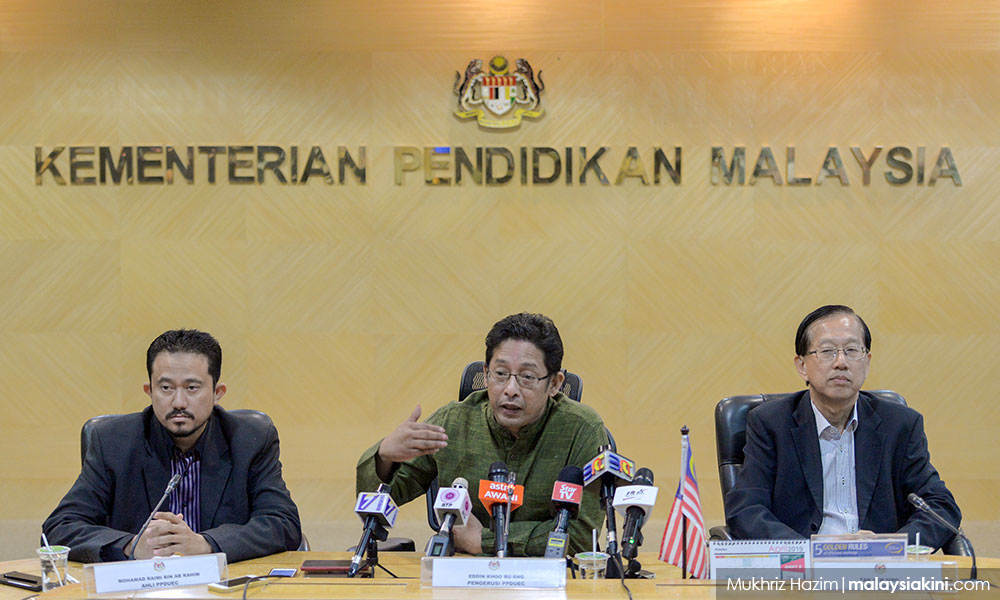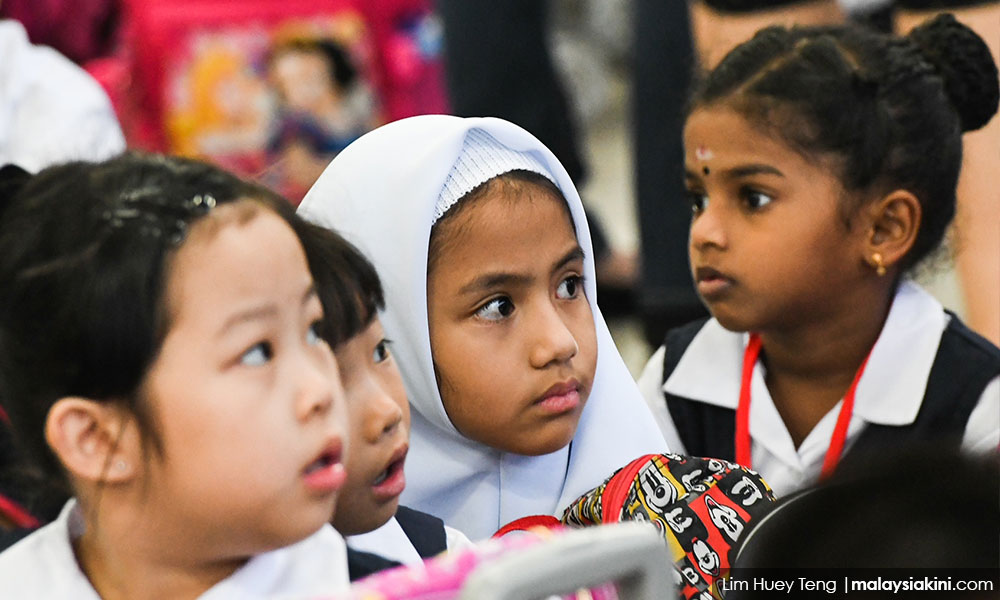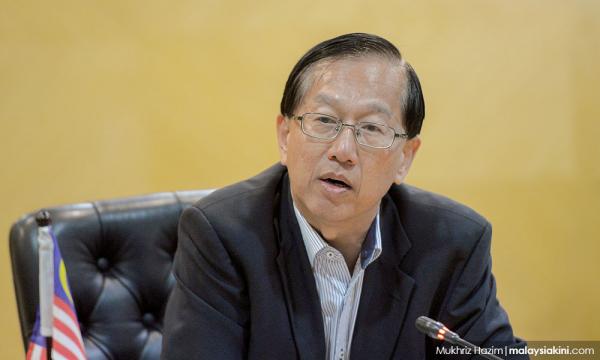The Unified Examination Certificate (UEC) task force is planning to submit its final report at the end of October after meeting with members of parliament and groups from Sabah and Sarawak in the coming few weeks.
This followed complaints from the Sarawak Association of Chinese School Management Boards that they were not consulted as reported by Sin Chew Daily.
UEC task force member and deputy president of Dong Zong, Tan Yew Sing (photo, above) said that opinions from East Malaysia are important and will be included in the final report.
"Actually, we have met the directors of the (Sabah and Sarawak) state education departments, and also the executive council member in Sabah and Sarawak. However, there are still some stakeholders who want to meet with us. "
"However, as we are pressed for time, we can't go there, and we can only ask them to come to Kuala Lumpur."
Tan added that any group from Sabah and Sarawak interested in participating in the consultation can contact them within the coming two weeks, and the task force will arrange a time to meet them.

UEC taskforce chairperson Eddin Khoo said that they will engage the MPs on Oct 16 to enhance the understanding of UEC.
"The engagement session is open to all MPs. As we want to bring this issue to the people, the best way to do it would be through their public representatives," said Khoo during the press conference in Putrajaya this morning.
He added that the engagement is a platform to moderate different aspects of party interests, constituency interest, cultural constituency interest, faced by the MPs from different parties.
The UEC task force comprises three members - Khoo, Tan and Abim president Mohamad Raimi Abdul Rahim.
Tan, who was present today, said the three members shared a common stand in that the final report should be made public so that people could study the comprehensive views from different stakeholders and the recommendations given by the task force.
Mohamad Raimi, meanwhile, pointed out that the issues of language and unity were among the main issues raised most frequently during the 72 stakeholders engagement events.
"As Malaysia is a multicultural and multilingual environment, some are stressing about the right to learn mother tongue while the others are emphasising the importance of Bahasa Melayu as our national language and also as the medium of instruction in education.
"Therefore, the language issue was brought up most frequently," said Mohamad Raimi, adding that national unity was also brought up at every public consultation event.
“Almost all of the stakeholders want us to take national unity into account when dealing with this issue. We can't let the UEC recognition issue further divide our society. ”

Khoo pointed out that when dealing with the issue of the UEC, the national education system and parental choice had to be considered as well.
He said that Malaysia already had a unique cosmopolitan education system for decades when other countries were still debating and struggling over a proper solution.
"For example in Europe, they are still debating whether they should allow Islamic schools or whether they should allow mother language schools. Those issues are being debated in those countries now but we have already had them (these schools) for years.
"We are a cosmopolitan society and we have been a cosmopolitan society for hundreds of years [...] but instead of providing a model, an example of a prototype that can be ambulated, we are fighting among ourselves."
He also mentioned that they found some interesting generational and internal differences during the public engagements.
"For example, we saw the great desire among young Malays to learn the Chinese language and the great desire for many young Chinese to interact deeper and further with Malays," noted Khoo.
Thus, he viewed that Malaysia had the potential to become a global model of a cosmopolitan education system, "if we can reform our national education system through some innovative approaches".


